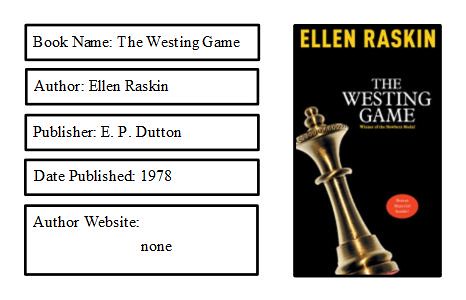
In this sly murder mystery, the mysterious death of eccentric millionaire Sam Westing brings together an unlikely assortment of heirs. Divided into pairs, they must uncover the circumstances of his death before they can claim their inheritance.
The Westing Game has long been a confusing book for me. When I was in Elementary School there was a contest to read past Newberry medal winners. I read The Westing Game as one of them and instantly regretted it. I didn't get it. I didn't like it. And, for some inexplicable reason, it left me confused and sad. I've revisited it twice since in Jr. High and High School with much the same reaction. I picked it up again hoping that I would, as an adult, see what the Newberry committee saw in the book. And, finally, I can say I think I get it. I don't know if it would have been my choice for an award winner, but I didn't read the other books eligible that year either, so I'm not going to judge. I do think, though, that it's important to remember that this is a children's book that I didn't get until I read it at age 30 when I already knew the ending.
The Westing Game isn't really science-fiction or fantasy. It's a mystery/thriller. A man builds a high-rise apartment building, invites specific people to live there, and then dies. At his will reading the tenants find out that they're all heirs, but they only get the inheritance if they figure out which one of them killed the millionaire. The heirs are paired off and given "clues" into who the murderer is, along with a small cash incentive. They spend the rest of the book trying to figure out which one of them is a murderer while dealing with a blizzard, a bomber, and a thief as well. There are ample clues along the way, however, even with this re-read I feel that there was never a good explanation as to why the game-master makes the choices he does, which leads to a certain distance from the game. You're also constantly jumping from character to character in the omniscient person, so you don't get much of a connection to a certain player, either. The plot is worked out well, with all the clues set in place and made to work together, but either it didn't work or it worked too well because I still feel that the ending comes rather out of left field. In all, this isn't the horrid book I made it out to be as a child, but it's still not going to be one of my favorites by far.

No comments:
Post a Comment